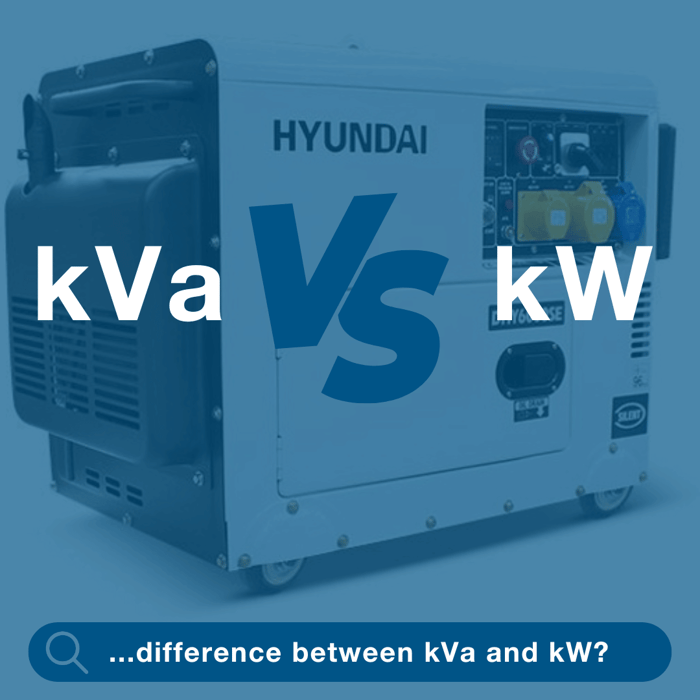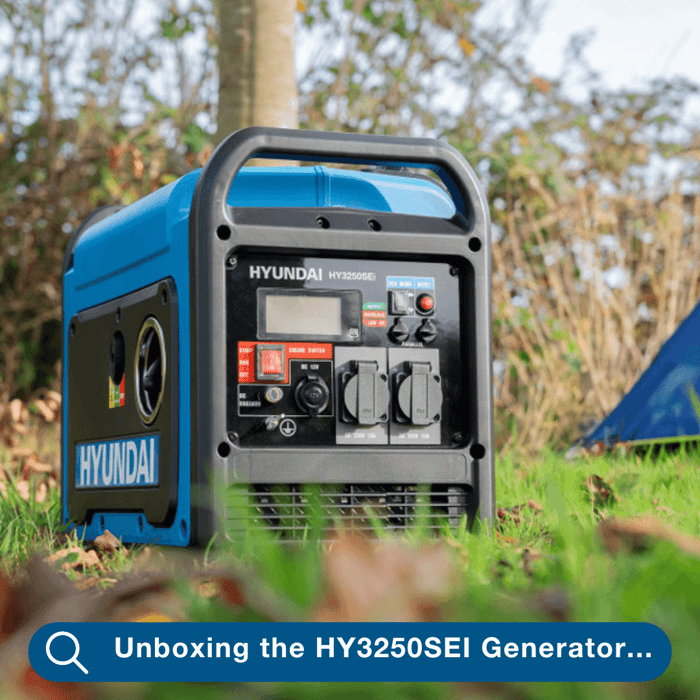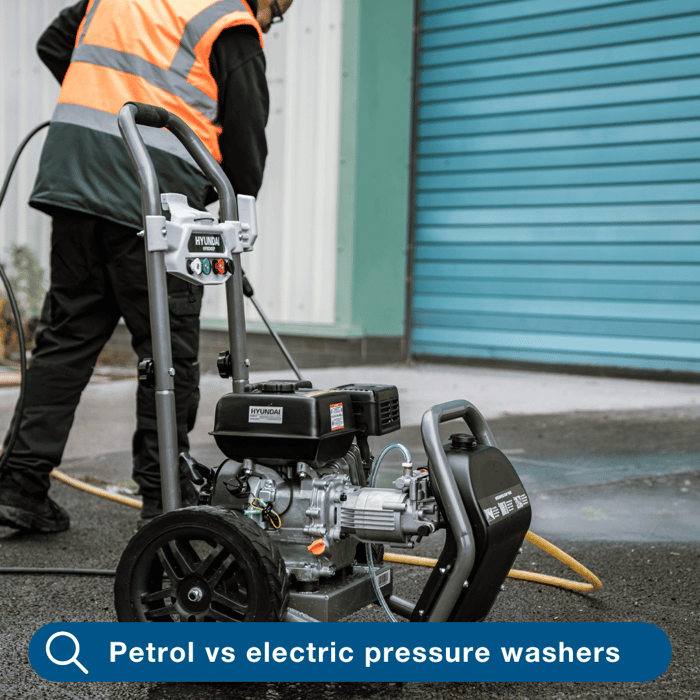
What is the difference between kVA and kW? | Generator Guides
In this blog post:
When purchasing a diesel generator, you're likely focused on finding one with enough power to reliably support your home or business. As you browse through generator options, however, you may encounter two different measurements listed: kW and kVA.
In this Hyundai Power Equipment guide we explain the difference between kW (kilowatts) and kVA (kilovolt-amperes), clarify why each is used, and provides tips to help you make the best generator choice for your needs.
What is kVA ?
The Measurement of Apparent Power
Let's start with kVA, which stands for kilovolt-amperes. This measurement represents the apparent power of a generator—the maximum potential power output if the generator operates with 100% efficiency. In other words, it indicates the generator's theoretical capacity.
Electrical systems are rarely 100% efficient, so the actual usable power is typically less than the apparent power. This is where power factor comes into play, a number that represents the efficiency of the system and bridges the difference between kVA and kW.
What is kW ?
The Measurement of Real Power
Now for kW, or kilowatts, which is the measurement of real power—the amount of power a generator will actually supply to power your devices and equipment. This is why electrical appliances are rated in watts (W) and kilowatts (kW); they provide a clear indication of how much usable power you need.
For example, if a generator is rated to deliver 80 kW, it can continuously supply 80 kilowatts of power to connected devices.
Power Factor: The Bridge Between kVA and kW
To convert kVA to kW (or vice versa), you need to know the power factor (pf) of the generator. The power factor measures the efficiency of electrical equipment, with values ranging between 0 (0% efficiency) and 1 (100% efficiency). Most diesel generators have a power factor of around 0.8, which means they operate at 80% efficiency.
Key Formulas:
Converting kVA to kW:
Apparent Power (kVA) × Power Factor (pf) = Real Power (kW)Converting kW to kVA:
Real Power (kW) ÷ Power Factor (pf) = Apparent Power (kVA)
Using these formulas, if a generator is rated at 100 kVA, you can calculate its real power output in kW by multiplying by the power factor:
100 kVA×0.8=80 kW
Conversely, to find the kVA from a given kW rating, you would divide by the power factor
Example: Calculating Generator Power Needs
Suppose you need to power a workspace with equipment that requires 60 kW of consistent power. If the generator has a power factor of 0.8, you would divide 60 kW by 0.8 to get the kVA requirement:
60 kW÷0.8=75 kVA
We would also recommend that the generator should be running at 70% of its capacity for maximum efficiency and long life. Therefore 75kVA/0.7 = 107kVA
In this case, a generator with an output of 107 kVA rating would be suitable for your needs.
kVA vs. kW: Why Do We List Both?
The industry standard is to advertise generators with their kVA rating first. This is partly because the larger kVA figure is often more eye-catching. However, the kW rating is crucial because it gives you the actual usable power. At Hyundai Power Equipment, we always provide both the kW and kVA figures so you know exactly how much power each generator can deliver.
Real-World Comparison: The Beer Analogy
Imagine you're enjoying a pint at the pub. The total volume in your glass, including foam and liquid, represents the kVA—the potential power. However, only the liquid beer quenches your thirst, which is the kW, or usable power. Just as you benefit from a pint with less foam, a more efficient generator with a higher power factor delivers more real power (kW).
This is true for 3-phase generators as the power factor is normally 0.8.
However many brands advertise single phase generators with a power factor of 1, as having a kVA figure higher than the kW figure.
The reason behind this is to benefit marketing. The logic is that the generator can power appliances with a kVA figure 1.25 times the generator kw figure if the appliances have a power factor of 0.8.
Selecting the Right Generator: kW or kVA?
Understanding the difference between kVA and kW can help you choose the right generator for your needs. Consider the appliances or equipment you need to power and check their combined kW requirement. Then, convert that to kVA based on the generator’s power factor to ensure compatibility.
Need Assistance? We're Here to Help!
If you're still unsure about which generator is right for your power needs, our team at Hyundai Power Equipment is here to help. Our Generator experts can provide recommendations based on your specific requirements, so you can feel confident in your choice.
Contact Us
Phone: 01646687880
Live Chat: Available on our website
Choose the right generator with Hyundai Power Equipment and experience reliable power when you need it most.
Discover more help , tips and advise on Generators or read some of popular generators blog posts below:

 Expert Advice and Aftersales
Expert Advice and Aftersales Free UK Delivery*
Free UK Delivery*

